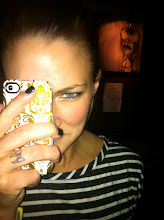I'm cheating a bit here: The Wizard of Oz was a book initially, but let's be serious: Judy Garland made that film. In The Wizard of Oz, Dorothy is caught in a tornado in her midwest home. She can't make it to the storm cellar and hides under her bed with Toto, her Cairn Terrier. She must have hit her head and gotten knocked out, or perhaps just fallen asleep due to sheer boredom (tornadoes are not a rare occurance; she was used to the drill). Anyhow, she dreams a magnificent dream of witches, both good and evil, munchkins, flying monkeys, and magical shoes. In the land of the munchkins, Dorothy meets Glenda the Good Witch who tells her to "follow the yellow brick road" that will lead her to the wizard who will help her return home to Kansas. Along the way she meets a scarecrow who is lacking a brain, a tin man who is lacking a heart, and a lion who is nothing but a scaredy cat. They are being tracked by the Wicked Witch of the West who is out to get them for killing her sister, the Wicked Witch of the East. In the end, Dorothy merely taps her heels together three times, and says, “There’s no place like home” with each tap, and is miraculously back in her humble Kansas home. Although she’s convinced everything in Oz was real and that it actually happened, her Aunt Em assures her it was merely a dream.
What are L. Frank Baum, the author of the novel, and Victor Fleming, the film’s main director, trying to say about dreams? I think that they’ve made a bold assertion that dreams are irrelevant, not related, and insignificant. Munchkins? Witches reigning from different directions on a compass rose? Flying monkeys? I suppose the dream shows Dorothy that there really is "no place like home", but other than that, the dream is lacking in relevance to Dorothy’s waking life. In many other works of literature, like Wide Sargasso Sea, Romeo & Juliet, and Hamlet, dreams have a different relationship with consciousness.
skip to main |
skip to sidebar





a (sub)conscious exploration of dreams as a motif in literature

WORKS IN THE DREAM WEB
SOME MORE THOUGHTS ON DREAMS




Blog Archive
-
▼
2009
(8)
-
▼
June
(8)
- Romeo & Juliet; act I, scene ivROMEO I dream'd a...
- We all dream. Some of us remember our dreams, and ...
- Dreams in The Wizard of Oz (The Motion Picture)
- Franz Ferdinand "LUCID DREAMS"
- Dreams in Wide Sargasso SeaDreams are frequently u...
- For his first non-documentary film after 2004's ET...
- This Isn't Really Happening: A "Real" Dream Collage
- DIVE INTO THE INFINITE ABYSS THAT IS YOUR DREAMLAND
-
▼
June
(8)
